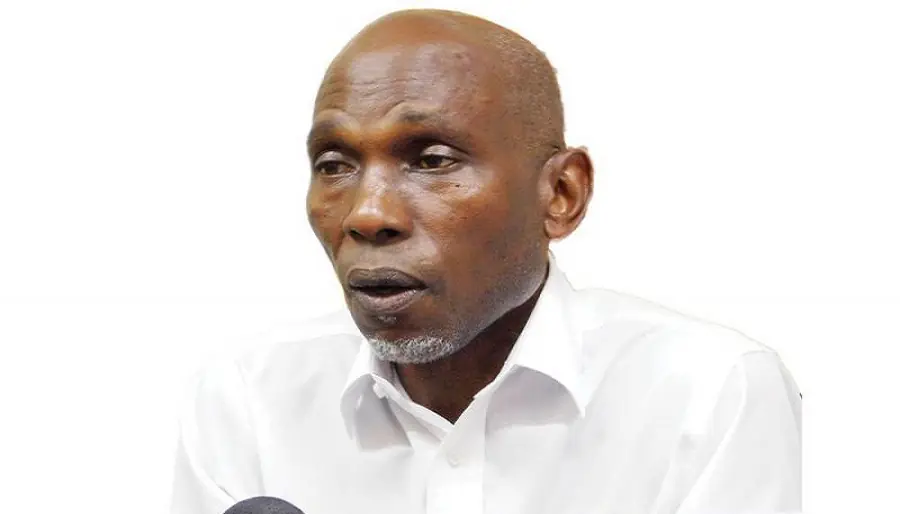Trevor “Buju” Bailey’s admission on Monday on the “Voices” radio programme that gangs operate in SVG is a welcomed disclosure if we are to come to terms with reality and find solutions to this profoundly depressing and escalating homicide problem. Bailey, a police veteran of over three decades and currently tasked with fighting crime by the police high command, ought to know what he is speaking about.
Just last month, top cop Enville Williams refused to directly link the killings in SVG to organised crime. Previously, PM Gonsalves, who doubles as minister of national security, spoke about “associational groupings”. Clearly, the security establishment has been in a comatose denial regarding the crime situation. Since 2011, almost 500 persons have been killed, mainly through gun violence. We broke the national record in the last two years with an official homicide count of 44 in 2023 and 55 last year.
At last count, at least 30 homicides are recorded. We are well on our way to another record for murder and mayhem in 2024. Every adult citizen of our country would readily admit that there are criminal gangs. In fact, at the law courts, police and prosecutors routinely inform the court that an accused person is suspected of belonging to a gang.
In arriving at his conclusion, Bailey was detailed and enlightening. He said: “When I look at how some of them operate, you’re seeing structure. There’s a command structure. There are duties that are assigned to persons … the activities of the gangs are not done haphazardly. We see them engage in robberies. We know that they engage in offences of murder. We know that they engage in narcotics. They have colour codes.”
Buju Bailey’s update aligns the police position with that of the general population, and we hope he does not get into “trouble” because of his honest disclosure. On Wednesday, during the OMG segment of Boom FM, Shevrel “Candyman” Mc Millan, the prime minister’s media assistant, charged that Bailey may have either misspoken or spoken out of turn. As we have seen with hurricanes, volcanic eruptions, crime fighting, education, health, and relief assistance, PM Gonsalves is the minister of everything. It may be that Bailey ought to have allowed the PM to make the grand announcement or sought approval before making it. After all, this government has the unique distinction of being tough on crime and the causes of crime with tangible results.
Bailey’s admission raises the question: If the police high command knows so much about these criminal gangs, why are they not infiltrating, arresting, charging, and convicting more of their members? Are some of these elements offered official protection? Have the gangs infiltrated the police and are tipped off about police activities? Are police equipped with the necessary crime-fighting tools to make a serious dent in criminal activity?
Another point to ponder is this: Considering that there are just over 100 persons incarcerated for homicides, there is a real prospect that SVG has multiple serial killers. This is the logical conclusion, bearing in mind that about 500 persons have been killed in the last decade alone. The authorities may have hoped that these criminal elements may shoot and kill off each other. However, many criminologists have argued that such is a hopeless strategy. They point to the high levels of hopelessness and helplessness driven by chronic employment and dislocation in many communities as fertile poles from which new criminal recruits are drawn.
Buju Bailey’s belated but welcomed admission may be a clear sign that the security establishment has “turned the corner” on crime fighting.
The polling has begun
The most significant reading from a recent poll is the ratings of opposition hopeful Kishore Shallow. That Shallow, president of Cricket West Indies, has poled so well even without declaring an intention to get into national politics is significant for a number of reasons. For one thing, it shows what new, fresh and credentialed faces can do to a team.
Shallow, at 19%, polls almost as well as party leader Friday, with a 21% likelihood of outperforming PM Gonsalves. This pole should lend urgency to the NDP’s effort to find new candidates for the West St. George, East St. George, Marriaqua, Central Leeward, and Southern Grenadines constituencies.
A proper reading of the polled numbers fuels the need for change among opposition ranks if the party intends to offer a serious challenge. About 18 months before the next elections, the ULP numbers are better than they may appear. Twenty-three per cent of the respondents gave the party a poor rating, while 26 gave it more than a 2 out of 5 ratings. These ratings come as the party prepares to vie for a sixth consecutive term in office. However, 20% of those polled rate the party’s governance as good, and 28% said it is doing a fair job.
From Gonsalves’ standpoint, the biggest disappointment is his son, Camillo Gonsalves’ dismal polling numbers. Camillo polled just 9% as a possible replacement for PM Gonsalves. Saboto Caesar, seen as a significant obstacle to Camillo’s emergence, scored twice as well, with 17%.
An even more worrying disclosure for PM Gonsalves and ULP is that only 35% of those polled approved of his performance, while 40% disapproved.
With the multiplicity of problems in SVG, including employment and underemployment, poverty, crime, a dismal road network, and official corruption, we are in for an interesting period ahead.



